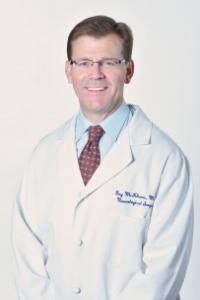Janet’s Story: Hydrocephalus Treatment Reverses Her Dementia; Thank you Dr. McKhann
Janet’s problems began slowly. She stumbled into a car once. Another time she lost her balance on a subway grate.
Family members described her thinking as being “nonlinear,” and she herself just felt “a bit off,” although she couldn’t otherwise explain it.
After years of gradually increasing problems, she finally sought out her primary care physician, who sent her to a neurologist.
Janet’s neurologist then told her she had too much fluid in the brain, a condition known as normal pressure hydrocephalus (NPH). This is one of the few forms of dementia that may actually be reversed with skilled surgical intervention.
Janet’s daughters scoured the internet to find the best surgeon available for this condition. They soon found Dr. Guy McKhann II of Columbia University Medical Center/NewYork-Presbyterian Hospital.
Janet would later record her experience in a short narrative she titled “A Personal Journey with Hydrocephalus.” She would include this memoir in a thank you letter to Dr. McKhann.
In her story, Janet said she did not want to have treatment at first. “Still in denial, I ignored or rationalized my poor balance and erratic walking,” she wrote. But then, still in the “denial” phase, as Janet calls it, she fell and found herself “face down in the street, next to the mailbox.” Janet finally realized she could not go on without treatment.
Dr. McKhann first gave Janet a trial of draining fluid out of her spinal column before putting in a more permanent fix: a shunt that drains fluid out of her brain and into her abdomen.
Normal pressure hydrocephalus is remarkable in that most, if not all, of the neurological problems can be reversed with successful treatment. For Janet, she found almost immediate improvement of her balance, memory, and thinking. She wrote that a “cloud” she never even realized was there, had started to lift.
“This process apparently resulted in what I called ‘Bionic Woman Syndrome’,” she wrote. With both her brainpower and her confidence returning, Janet even felt comfortable tackling new challenges like learning to use a computer.
Now that Janet’s life is back on track, she is currently dedicated to reorganizing her home. Her healing process isn’t complete, she notes—but she feels that as her home becomes more organized, so does her mind.

